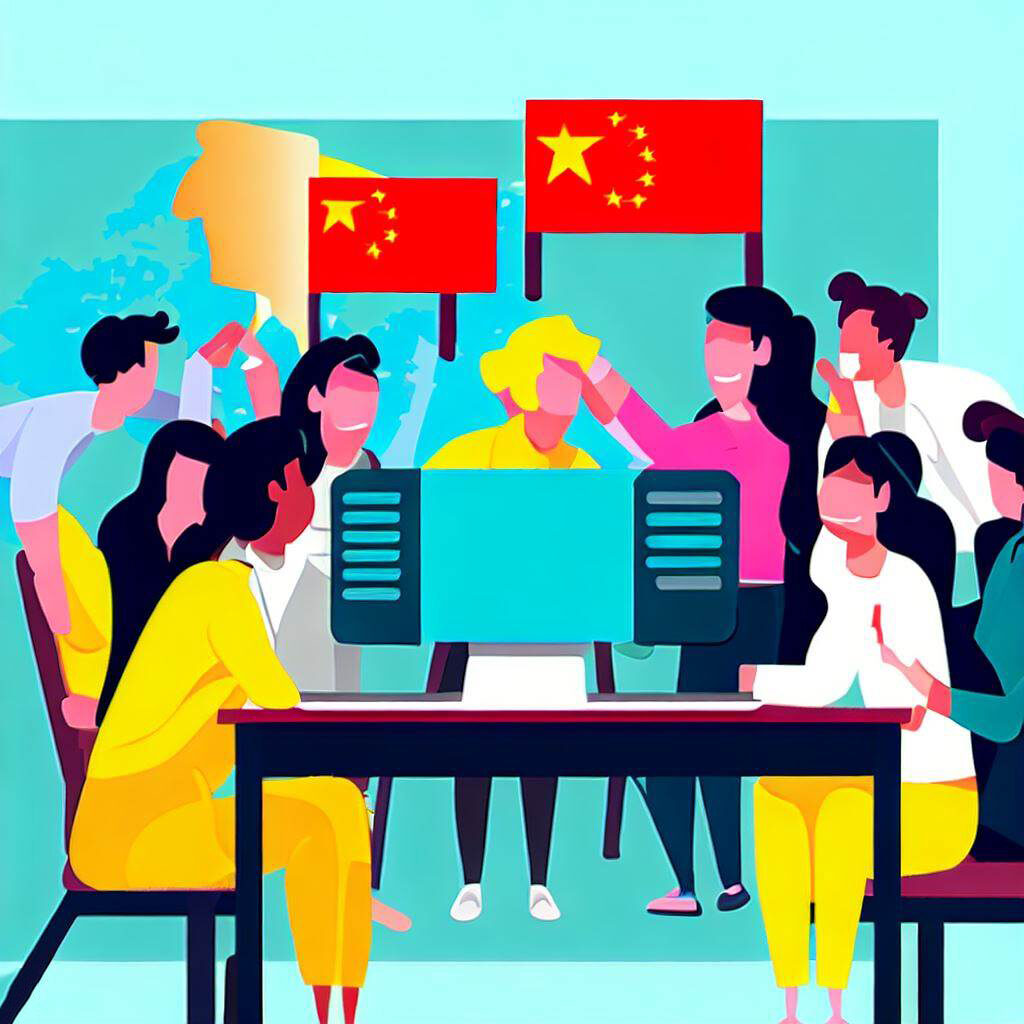In the dynamic world of global trade, Chinese manufacturers have emerged as key players. Their ability to offer competitive pricing, high-quality products, and expansive production capabilities makes them a top choice for businesses worldwide. However, success in importing, wholesaling, and distribution hinges not only on finding the right Chinese manufacturers but also on building and maintaining strong relationships with them.
The Value of Chinese Manufacturers

Why do so many businesses turn to Chinese manufacturers? The answer lies in several compelling factors. Firstly, Chinese manufacturers are often known for their cost-effectiveness. This can translate to higher profit margins for businesses that source their products from China. Secondly, China boasts a robust infrastructure for manufacturing, enabling companies to handle large orders with relative ease. Lastly, the sheer diversity of Chinese manufacturers means that businesses can find suppliers for nearly any product category.
Challenges in Dealing with Chinese Manufacturers
While the advantages are clear, it’s essential to acknowledge the challenges associated with working with Chinese manufacturers. Language barriers, cultural differences, and significant time zone variations can create hurdles in communication. Moreover, misunderstandings can arise when expectations are not clearly communicated, leading to complications in orders and project timelines.
Benefits of Strong Relationships

Building and maintaining strong relationships with Chinese manufacturers bring a host of benefits that can significantly impact your business. Cost savings are one of the most obvious advantages, as long-term partnerships often lead to favorable pricing and terms. Additionally, consistent product quality and reliability are assured when manufacturers understand your specific requirements. This consistency can enhance your brand’s reputation for quality. Timely deliveries and reduced lead times are other perks that come with strong relationships, allowing you to meet customer demands more efficiently. Moreover, established relationships provide you with flexibility for customization and scaling production as your business grows.
Building Strong Relationships
Successfully forging strong relationships with Chinese manufacturers requires a strategic approach. Effective communication is at the heart of this endeavor. Embrace modern technology tools such as video conferencing, messaging apps, and translation software to bridge language and geographical gaps. Consider visiting manufacturing facilities when possible to gain firsthand insights into their operations and capabilities.
Mitigating Risks
Working with Chinese manufacturers also carries some inherent risks, but these can be effectively managed. Ensure that your chosen manufacturers comply with relevant regulations and quality standards, reducing the chances of product recalls or legal complications. It’s essential to have a clear understanding of your manufacturers’ practices and quality control measures. Regular quality checks and inspections can be part of your strategy to mitigate risks.
Navigating Challenges in Dealing with Chinese Manufacturers

Despite the numerous advantages, the path to building robust relationships with Chinese manufacturers is not without its challenges. To truly succeed in this endeavor, it is crucial to acknowledge and proactively address these potential stumbling blocks.
Language Barriers and Miscommunications:
Language barriers can be one of the most immediate challenges when dealing with Chinese manufacturers. Effective communication is the foundation of any successful business relationship. Misunderstandings due to language differences can lead to mistakes in orders, misinterpretation of product specifications, and delayed shipments.
Mitigation Strategy: Investing in professional translation services or hiring bilingual staff can bridge these gaps. Additionally, utilizing translation software and communication platforms with built-in translation features can facilitate smoother interactions.
Cultural Differences:
Chinese business culture can differ significantly from that of Western countries. Understanding and navigating these differences is essential for building trust and rapport. For instance, the Chinese value harmony and relationships, which can influence negotiation tactics and conflict resolution.
Mitigation Strategy: Educating your team about Chinese business customs and etiquette can help you navigate these cultural nuances. It’s also advisable to have a local contact or intermediary who understands both cultures to facilitate communication.
Time Zone Challenges:
China operates on China Standard Time (CST), which can create significant time zone differences with Western countries. This discrepancy can make real-time communication challenging, leading to delays in responses and decision-making.
Mitigation Strategy: Establish clear communication protocols that consider time zone differences. This might involve setting designated communication windows, scheduling meetings well in advance, and using asynchronous communication tools like emails and messaging apps.
Intellectual Property Concerns:
Protecting intellectual property (IP) is a critical concern when engaging with Chinese manufacturers. While China has made strides in IP protection, cases of IP infringement still exist, especially when dealing with less reputable manufacturers.
Mitigation Strategy: Conduct thorough due diligence before partnering with a manufacturer. Verify their credentials, including licenses, certifications, and any history of IP disputes. Implement strong contracts with clear IP protection clauses.
Conflict Resolution and Problem-Solving:

In the course of doing business, conflicts and challenges may arise. A strong relationship with your Chinese manufacturers can be instrumental in swiftly resolving these issues. Manufacturers who value your partnership are more likely to work collaboratively to find solutions, minimizing disruptions to your supply chain.
Mitigation Strategy: Establish effective conflict resolution protocols within your partnership agreements. Ensure that disputes are addressed promptly, with a focus on finding mutually beneficial resolutions.
Supply Chain Risks:
Global supply chains are susceptible to various risks, including disruptions due to natural disasters, political instability, or economic fluctuations. Maintaining strong relationships with your manufacturers can provide insights into potential risks and opportunities to mitigate them.
Mitigation Strategy: Regularly assess your supply chain for vulnerabilities and develop contingency plans. Engage in open dialogue with your Chinese manufacturers about potential risks and explore strategies to diversify sources or adapt to changing conditions.
Quality Assurance
Ensuring consistent product quality from Chinese manufacturers is an ongoing effort. While strong relationships can lead to better quality control, it’s essential to implement robust quality assurance measures.
Mitigation Strategy: Invest in quality control processes such as third-party inspections, factory audits, and performance metrics. These measures should be embedded in your partnership agreements to maintain product quality over time.
Incorporating Supplier Audits:
Supplier audits are a proactive approach to ensuring that your Chinese manufacturers maintain the highest quality standards. These audits involve on-site assessments of manufacturing facilities, processes, and quality control measures. Audits can reveal areas of improvement, highlight compliance with international standards, and reinforce the commitment to quality.
The Evolving Landscape of Ethical Sourcing:
In recent years, ethical sourcing has gained significant attention across industries. Ethical sourcing practices encompass various aspects, including labor conditions, environmental impact, and social responsibility. It’s essential for businesses to consider the ethical implications of their partnerships with Chinese manufacturers.
1. Labor Conditions: Ensuring that workers at manufacturing facilities are treated fairly, paid decent wages, and work in safe conditions is a fundamental aspect of ethical sourcing. It’s important to collaborate with manufacturers who adhere to labor standards and regulations.
2. Environmental Impact: Environmental sustainability is a growing concern globally. Partnering with manufacturers committed to reducing their environmental footprint through responsible sourcing, energy efficiency, and waste reduction can align your business with ethical values.
3. Social Responsibility: Engaging with manufacturers who contribute positively to their communities and society at large can enhance your brand’s reputation. Manufacturers involved in charitable initiatives, community development, or educational programs demonstrate social responsibility.
Navigating Ethical Sourcing Challenges:
While ethical sourcing aligns with values and consumer expectations, it can present challenges when working with Chinese manufacturers. Some manufacturers may prioritize cost-effectiveness over ethical considerations.
Mitigation Strategy: Conduct thorough due diligence to identify manufacturers that align with your ethical sourcing goals. Leverage international certifications and industry
In Conclusion
In the intricate tapestry of contemporary global commerce, Chinese manufacturers have emerged as linchpins in numerous supply chains. The benefits they offer are resounding, but they can be fully harnessed only through deliberate efforts to foster robust and lasting relationships. While building these relationships requires concerted time and energy, the rewards in terms of cost savings, product quality, and scalability are profoundly impactful. In today’s competitive landscape, the significance of building strong relationships with Chinese manufacturers cannot be overstated. It’s a strategic move that can propel your business to new heights in the import, wholesale, and distribution sectors.




